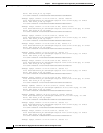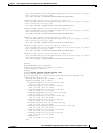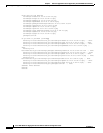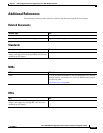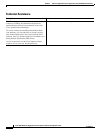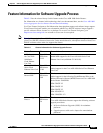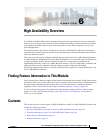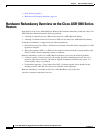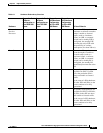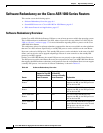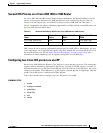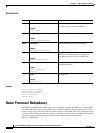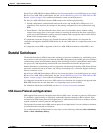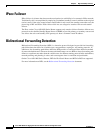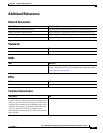
6-2
Cisco ASR 1000 Series Aggregation Services Routers Software Configuration Guide
OL-16506-17
Chapter 6 High Availability Overview
Hardware Redundancy Overview on the Cisco ASR 1000 Series Routers
• IPsec Failover, page 6-8
• Bidirectional Forwarding Detection, page 6-8
Hardware Redundancy Overview on the Cisco ASR 1000 Series
Routers
Some models of the Cisco ASR 1000 Series Routers offer hardware redundancy within the same Cisco
ASR 1000 Series Router through the following methods:
• Allowing two Route Processors (RPs) in the same Cisco ASR 1000 Series Router
• Allowing two Enhanced Services Processors (ESPs) in the same Cisco ASR 1000 Series Router
No hardware redundancy is supported for the following hardware:
• SPA interface processors (SIPs)—A SIP must be reloaded, and traffic briefly interrupted, for a SIP
upgrade to complete.
• Shared port adapters (SPAs)—A SPA must be reloaded, which will briefly interrupt traffic to that
SPA, for a SPA software subpackage update to complete.
Hardware redundancy on the Cisco ASR 1000 Series Routers gives users the following benefits:
• A failover option—If a processor fails, the standby processor immediately becomes the active
processor with little or no delay. The failover happens completely within the same router, so a
second standby router is not needed.
• No downtime upgrades—Using features like ISSU, a software upgrade can be handled on the
standby processor while the active processor continues normal operation.
Hardware redundancy is available on the Cisco ASR 1006 Router only at this time.
provides a hardware redundancy overview.



